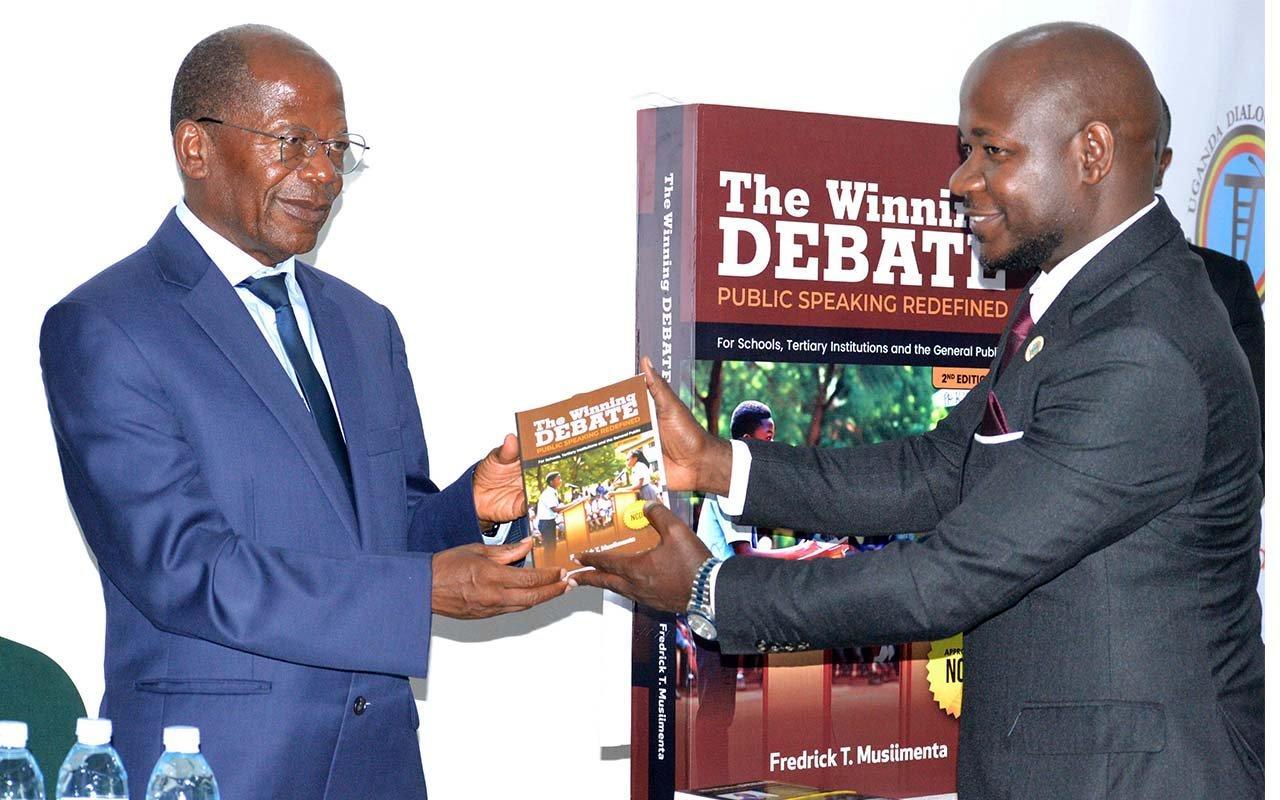Africa-Press – Seychelles. Title: The Winning Debate: Public Speaking Redefined
Author: Frederick T Musimenta
Price: Shs40,000
Availability: African Studies Bookstore
Pages: 167
Published: 2024
Any book about debate is welcome. This welcome is particularly open-armed in these times where any intellectual pursuit is frowned upon by many Ugandans. Gone are the days when debating prowess was respected in society.
In 1960s, debates made the leader and leadership made the person. This is how Milton Obote, an excellent debater, was able to scale the dizzying heights of political notoriety. He was not alone. Again, in the 1960s, counsel Akena Adoko took on Prof Ali Mazrui in a debate themed “What is the role of an intellectual?” Both of them fought their corners with the forensic footwork of debaters, who landed punches in bunches in the shape of hard-hitting facts.
Professors Mahmood Mamdani, Dani Nabudere, Omwony Ojok, Yash Tandon and several others also added to this intellectual tradition. They were all switchblade sharp intellectuals, who cut to the core of an argument without abuse or recrimination. And that is rare today.
In the 1990s, when president Museveni’s regime was still consolidating its hold on power, Uganda was everywhere alive with the pyrotechnics of intellectual jousting. I have fond memories of when I saw Aggrey Awori take on John Nasasira on Uganda Television (UTV). This was 1994. Awori needled Nasasira on the need to open up the political space for political pluralism. Nasasira, who was surprisingly eloquent back then, told him that the “no-party” dispensation at the time was ‘transitional”. I will never forget Awori’s response. “We cannot wait because even life itself is transitional,” he replied.
Frederick T Musiimenta puts up a spirited case for bringing debating back to the centre of intellectual and social life. He also surveys “The History of Debate and Public Speaking In Uganda” in chapter two. Although he covers several bases, he does not go very deep. A history of debate and public speaking in Uganda is a very wide topic, one that could make for serious academic study. Sadly, the author seems to be more interested in ingratiating himself with president Museveni than laying down the history that frames this chapter.
Here, take a look: “Furthermore, debate, public speaking and mass mobilization are synonymous with General Yoweri Museveni,” writes the author. “From being a Secretary of the Debating Cllub while in Senior Three at Ntare School, Mr. Museveni in his book ‘Sowing the Mustard Seed’ states that he was inspired to seriously engage in debate both at school and in the community.”
The author gives the reader the impression that Mr. Museveni is like the “owner of words” Nwaka who was a very wealthy man from Umunneora, one of the six villages of Umuara (Nigeria) in Chinua Achebe’s seminal book, Arrow of God. This is a false impression.
Mr. Museveni is a very good communicator. His use of imagery to explain his point of view in a painterly fashion is only rivaled by Norbert Mao’s masterly diction. But to say “debate, public speaking and mass mobilization are synonymous with General Yoweri Museveni” is rather laughable. That aside, the author has overly focused on debate as a somewhat placid team sport. Yet debate may correctly be called a full contact bloodsport between intellectual gladiators.
As Denzel Washington, acting as Melvin B Tolson in the film The Great Debaters, said: “Gentlemen and lady, debate is combat, but your weapons are words. Debate is blood sport; you must destroy your opponent, not only verbally but physically.”
Feel free to disagree or debate.
For More News And Analysis About Seychelles Follow Africa-Press






